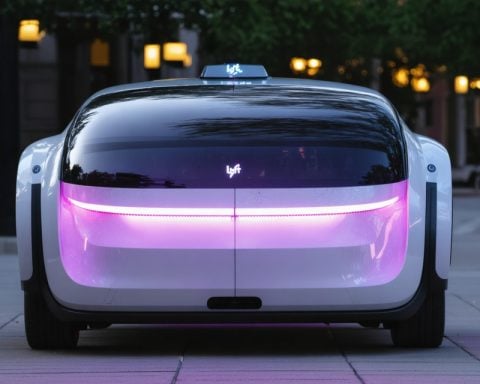- SK On and Nissan’s $1.8 billion agreement boosts EV industry advancement with 20 GWh of battery supply.
- Nissan’s switch to SK On may unlock substantial U.S. subsidies, enhancing competitiveness and market share in the U.S.
- SK On expands its influence with a factory in Georgia and global reach in South Korea, Europe, and China.
- Challenges include lower-than-expected BEV demand and post-election U.S. market uncertainties.
- Long-term battery supply commitment begins in 2028, aimed at industry leadership and innovation.
Revolutionary Step in EVs
A groundbreaking agreement between South Korea’s SK On and Japan’s Nissan marks a transformative leap for the electric vehicle (EV) industry. SK On is set to supply an enormous 20 gigawatt hours (GWh) of batteries, empowering approximately 300,000 battery electric vehicles (BEVs). This colossal $1.8 billion partnership represents more than just a business deal; it heralds a shift in automotive supply chains and regulatory environments.
Game-Changing U.S. Subsidy Access
Nissan’s shift from relying on Chinese suppliers like Envision AESC to SK On signifies strategic maneuvering toward potentially lucrative U.S. subsidies under the Inflation Reduction Act (IRA). This transition promises Nissan a competitive edge, enabling cost reductions and increased market share in the United States.
SK On’s U.S. Influence
With an operational factory in Georgia and plans for further expansion, SK On is cementing its influence across America while simultaneously extending its reach throughout South Korea, Europe, and China. These maneuvers solidify its global presence amidst fierce industry competition.
Navigating Challenges
Despite SK On’s ambitious projections, challenges loom large due to unexpectedly low BEV demand and uncertainties in U.S. market growth post the recent presidential election. These hurdles may affect battery production timelines and market dynamics.
Eyes on 2028: Future Outlook
Negotiations dating back to early last year anticipate a long-term commitment with battery supplies starting in 2028. This forward-looking alliance positions both companies for industry leadership, setting new standards in EV collaborations.
Key Takeaway
The SK On and Nissan partnership is not just a business transaction—it’s a beacon showcasing the future of EVs and sustainable transportation. With potential job growth and energy independence, the alliance underscores the importance of domestic supply chains and innovation. As 2028 looms, the horizon shines bright for a greener, more competitive automotive future.
Will This Alliance Transform The Global EV Market?
Key Insights and Predictions Surrounding the SK On and Nissan Partnership
How does the SK On and Nissan collaboration impact the global EV market?
The collaboration between SK On and Nissan is poised to have a significant impact on the global EV market through several key dimensions:
– Supply Chain Realignment: By securing a stable battery supply from SK On, Nissan is diversifying its supply chain, reducing dependency on Chinese entities like Envision AESC. This realignment not only increases resilience but also aligns with strategic geopolitical interests, particularly those influenced by U.S. regulations like the Inflation Reduction Act (IRA).
– Market Share Expansion: Access to U.S. subsidies through the IRA will enable Nissan to lower production costs, potentially reduce vehicle prices, and expand its competitive footprint in the American market. This move may drive up demand for Nissan’s BEVs, significantly influencing its market share and revenues.
– Global Influence: With SK On’s expanding infrastructure across South Korea, the United States, Europe, and China, both companies can leverage this global reach to influence market trends and EV adoption rates.
– Technological Innovation: The partnership might accelerate innovations in battery technology, including improvements in energy density, charging times, and overall efficiency, which could redefine industry standards.
What are the potential risks associated with this partnership?
While the partnership offers many advantages, it is not without risks:
– Uncertain Demand: The demand for BEVs could fluctuate, influenced by factors like economic conditions, governmental policies, and consumer preferences. If demand does not meet expectations, SK On and Nissan could face inventory and financial challenges.
– Regulatory Hurdles: Compliance with varied global regulations and adaptation to potential new policies in key markets presents ongoing challenges. Any sudden changes in U.S. policy post-elections could impact the anticipated benefits from subsidies.
– Technical and Logistical Delays: As with any large-scale manufacturing endeavor, there are risks of unforeseen technical issues and logistical delays. These could hamper the planned expansion efforts and battery production timelines.
How will this partnership influence sustainability in the automotive sector?
The SK On and Nissan alliance is likely to enhance sustainability within the automotive sector by:
– Promoting Clean Energy: By committing to deliver 20 GWh of batteries, this collaboration supports the transition towards cleaner energy sources, crucial in reducing carbon emissions associated with traditional combustion engines.
– Encouraging Domestic Production: The focus on fortifying domestic supply chains in the U.S. reduces the carbon footprint associated with long-distance component transportation, fostering more sustainable manufacturing practices.
– Driving Innovation: Collaborative efforts in research and development may lead to sustainable advancements, such as the creation of recyclable or less resource-intensive battery materials.
– Job Growth and Economic Impact: As the partnership progresses, it may stimulate local economies through job creation, contributing to sustainable economic models in line with environmental stewardship.
Suggested Related Links:
– SK On
– Nissan
















